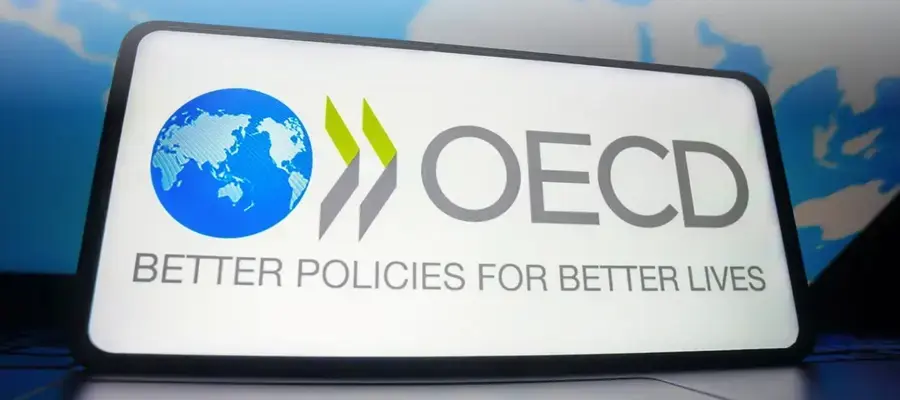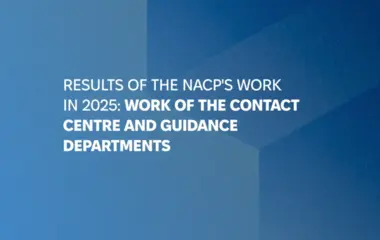Ukraine has created a robust legal framework for regulating conflicts of interest, and its digital declaration system is one of the most progressive. This is stated in the report by the Organisation for Economic Co-operation and Development (OECD) based on the comprehensive assessment of Ukraine within the framework of the fifth monitoring round of the Istanbul Anti-Corruption Action Plan.
The monitoring group rated Ukraine's efforts in regulating conflicts of interest and asset declaration at 78.3 points out of 100 possible.
We recall that the subject of the assessment was the system of prevention and combating corruption in Ukraine across nine key areas: "Anti-Corruption Policy," "Conflict of Interest and Asset Declaration," "Whistleblower Protection," "Integrity in Business," "Transparency of Public Procurement," "Independence of the Judiciary," "Independence of the Prosecutor's Office," "Specialized Anti-Corruption Bodies," and "Liability for Corruption Offenses."
A special feature of the fifth round was the application of performance indicators defined in the Monitoring Methodology. To assess the achievement of indicators, compliance criteria are used, which are based on international standards and best practices, and also include recommendations provided by the OECD within the framework of the previous monitoring round. Such an assessment system ensures objectivity, consistency, and transparency of conclusions.
Conflict of Interest
OECD experts noted that a comprehensive legal framework for preventing and resolving conflicts of interest has been formed in Ukraine. Specifically:
- the concepts of private interest, real, and potential conflict of interest are defined;
- the obligation of officials to report the presence of a conflict of interest and to refrain from making decisions until its resolution is established;
- both general and special measures for resolving conflicts of interest are defined for members of collegial bodies, persons who do not have direct supervisors, and certain categories of persons authorized to perform state or local self-government functions (judges, prosecutors, people's deputies, members of the Government, deputies of local councils).
The OECD also noted that sanctions for violations of legislation in this area are applied stably and effectively, and the number of court decisions in such cases is growing.
At the same time, the monitoring team drew attention to the need for further improvements. In particular, it is necessary to legally enshrine the concept of an "imaginary conflict of interest" (when it appears that an official's private interests may unduly affect the performance of their duties, but in reality, they do not) and introduce administrative liability for violating restrictions that arise after public servants leave office.
Asset Declaration
One of the most important achievements for Ukraine in the area of asset declaration was the opening of public access to the Unified State Register of Declarations, which had been restricted in March 2022, as well as the restoration of NACP's functions to carry out financial control measures.
The OECD monitoring team confirmed that Ukraine meets most international criteria in the field of asset declaration. These include:
- mandatory declaration for employees holding positions with a high level of corruption risk;
- a wide range of information for declaration — from assets, income, and bank accounts to membership in organizations, beneficial ownership, and virtual assets;
- an electronic system for filing declarations with free public access;
- a special NACP unit responsible exclusively for checking declarations has been established;
- the existence of an algorithm for selecting declarations for full verification;
- verification results allow for the detection of illicit enrichment, unjustified assets, and violations of conflict of interest legislation.
Among the challenges for Ukraine is the further improvement of the legal regulation of declaration. Thus, it is recommended to expand the scope of declarants to include employees of patronage services of officials holding political positions (e.g., assistants and advisors) and heads of state-owned enterprises. It is also necessary to introduce the obligation to declare ties with trust companies and the expenses of family members.
Despite the existing successes, it is important for Ukraine to continue focusing efforts on increasing the effectiveness of prosecution for violations in the field of asset declaration and conflict of interest resolution.
More about Ukraine's progress in anti-corruption policy is available on the NACP website.
The full text of the report based on the results of the fifth monitoring round of the Istanbul Anti-Corruption Action Plan is available via the link.
Reference. OECD Anti-Corruption Network (ACN) is a regional work program within the OECD Working Group on Bribery, established in 1998. Its mission is to support member countries in preventing and combating corruption through country analyses, practitioner networks, and individual technical assistance.
The Istanbul Anti-Corruption Action Plan is a regional expert assessment program launched in 2003 within the framework of the OECD ACN, which supports reforms by analyzing and monitoring the implementation of recommendations that promote the best international standards.
The Istanbul Anti-Corruption Action Plan provides for reviews of ten countries of the OECD Anti-Corruption Network: Ukraine, Armenia, Georgia, Kazakhstan, Kyrgyzstan, Moldova, Mongolia, Tajikistan, Azerbaijan, and Uzbekistan. Ukraine joined the Program in 2003 and has completed five monitoring rounds. All previous reports are available on the ACN website.
In March 2024, the OECD published the Report on Anti-Corruption Reforms in Ukraine based on the results of the fifth monitoring round of the Istanbul Anti-Corruption Action Plan (during 2023, Ukraine underwent a shortened review in 5 out of 9 areas: "Anti-Corruption Policy," "Asset Declaration," "Independence of the Judiciary," "Specialized Anti-Corruption Bodies," "Liability for Corruption Offenses"). The Report confirmed that Ukraine demonstrated significant progress in various areas of combating corruption and building integrity.









